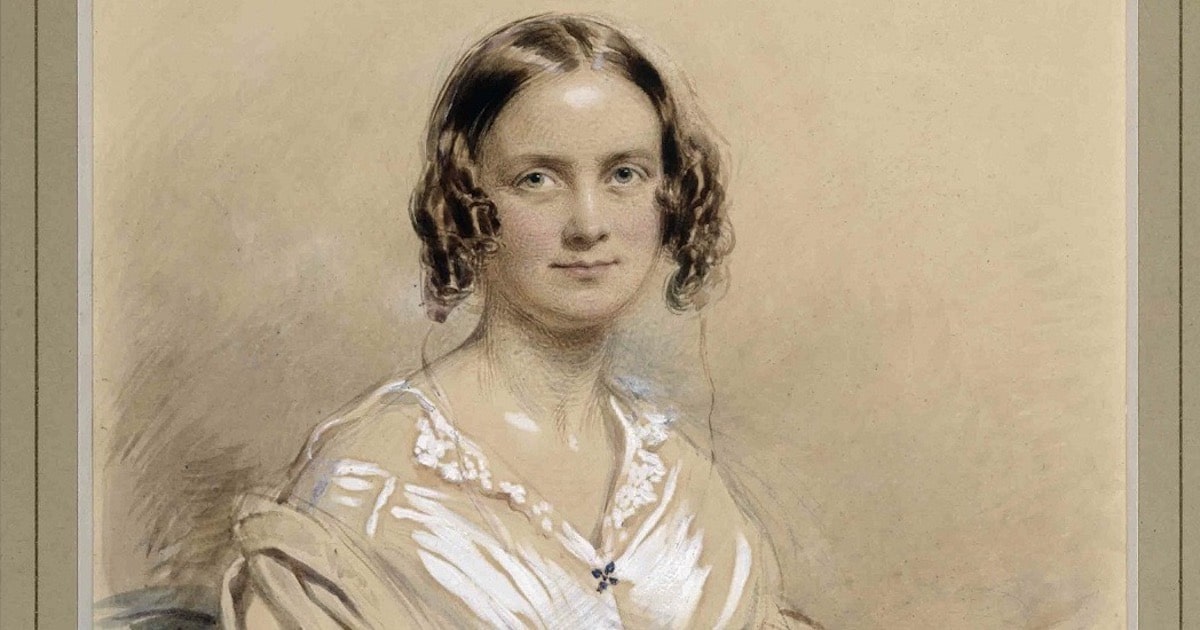 Culture & Ethics
Culture & Ethics
 Evolution
Evolution
 Faith & Science
Faith & Science
The Sagacity of Emma Darwin

It might be that to fully appreciate Laura Keynes’s review of a new book by philosopher Roger Scruton, you’d have to know that Ms. Keynes is the great-great-great-grandaughter of Charles Darwin. Of course, writing in Britain’s Standpoint Magazine, she’s not identified that way, but we’ve noted it here before. She is also a convert to Catholicism and a critic of the materialism of her famous forbear.
Scruton’s book is The Soul of the World (Princeton University Press), arguing much the same way that George Steiner does in a wonderful video I’ve shown you before on the importance of introducing children to good music.
The idea is that aesthetic experience is a prod to look beyond the material world to a transcendent reality and a window through which it “shines through” (as Steiner also puts it). Laura Keynes points out that Darwin complained of a major deficit in his aesthetic senses, which his wife Emma shrewdly proposed as an explanation for his scientism:
“I cannot endure to read a line of poetry: I have tried lately to read Shakespeare, and found it so intolerably dull that it nauseated me. I have also almost lost my taste for pictures or music.” So wrote Charles Darwin, conceding that his mind seemed “to have become a kind of machine for grinding general laws out of large collections of facts” causing “the atrophy of that part of the brain alone on which the higher tastes depend”.
Emma Darwin sagely noted that this impoverishment of aesthetic sense affected her husband’s understanding of faith: “May not the habit in scientific pursuits of believing nothing till it is proved, influence your mind too much in other things which cannot be proved in the same way & which if true are likely to be above our comprehension.”
Roger Scruton, drawing on all the things Darwin’s limited aesthetic sense could not appreciate, makes much the same plea in The Soul of the World.
A Defense of the Sacred
Scruton offers a defense of the sacred, as something concealed from the senses that are used in scientific investigation:
Scruton’s defence rests on what he calls cognitive dualism, “according to which the world can be understood in two incommensurable ways, the way of science, and the way of interpersonal understanding”. Looking at the world with the eyes of science is to see as Darwin saw, missing out aesthetic experience “through the systematic attempt to explain what we observe”. The world known in another way is an “emergent world”, “emerging from the physical reality, as the face emerges from the pigments on the canvas, or the melody from the pitched sounds”.
Scruton notes the habit of “nothing buttery” which declares “emergent realities to be ‘nothing but’ the things in which we perceive them.” So human consciousness is nothing but neural networks. The question says Scruton, “is how we move from the one concept of information to the other”; how understanding and interpretation are underwritten by perception. It is as Coleridge put it, “nothing mysterious in nerves, eyes, &c: but that nerves think &c!!”
This reminds me of Steiner but also of Terrence Malick’s amazing film The Tree of Life (see the trailer below), which troubled some critics with its seeming nod to intelligent design. In the person of the mother and father in the film, Mr. and Mrs. O’Brien (Brad Pitt and Jessica Chastain), Malick juxtaposed a “father’s way” and a “mother’s way” of seeing the world: “the way of Nature…and the way of Grace. You have to choose which one you’ll follow.”
Actually, I’m not sure you do have to choose. On the contrary, the “father’s way” without the mother’s is blind to the supernal. This may explain the persistent feeling I get that our New Atheist interlocutors are…missing a piece, almost as if the blindness were congenital with them. But the “mother’s way” without the father’s is also incomplete, which is a subject for another time.
The Impoverishment of Beauty
Ms. Keynes concludes:
Above all, The Soul of the World insists that a materialist view of the world is unacceptable, its consequences necessarily debasing. It leads to a world “remade without the transcendental reference, without the encounter with sacred things, without the vows of allegiance and submission which have no justification other than the weight of inherited duty”.
